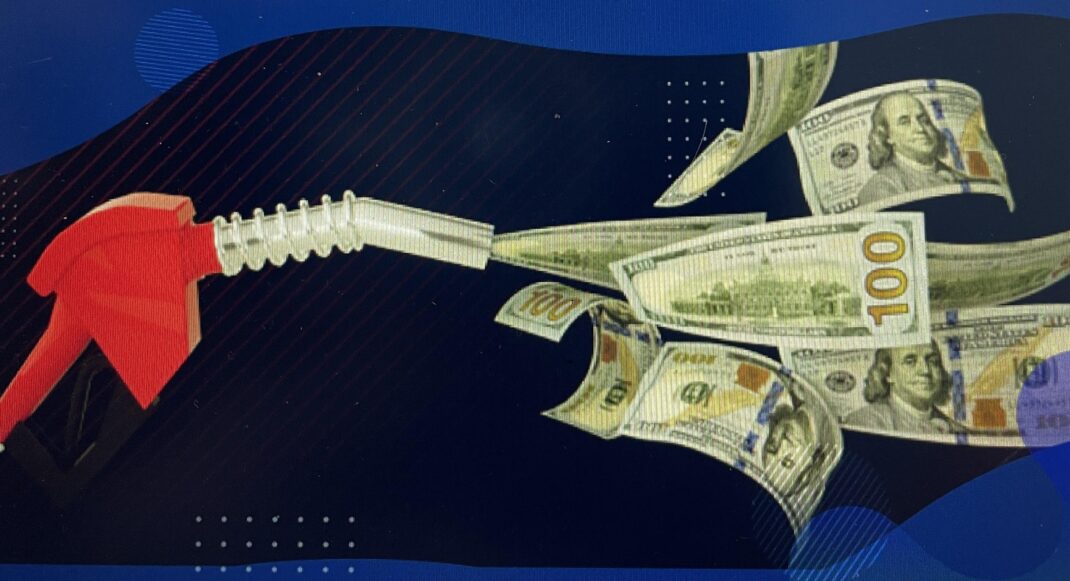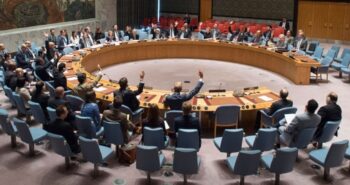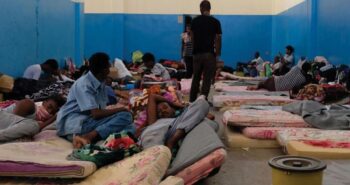Mona ElShazly

Abstract:
Energy subsidies have become a significant burden on government finances in Libya. The pervasive nature of subsidies has led to rampant corruption, smuggling, and a diversion of resources from essential public services. The paper identifies key barriers to reform, including opposition from vested interest groups and public apprehension regarding inflation and welfare loss.
To address these challenges, a strategic reform plan is proposed, emphasizing a phased approach, a comprehensive communication plan and social protection measures to mitigate the adverse effects of subsidy removal. By taking these steps, Libya can transition towards a more sustainable framework that supports macroeconomic stability.
A. Introduction
1. Energy subsidies in Libya are extremely generous and poorly targeted.
Given Libya’s substantial oil wealth, the government has historically provided fuel subsidies as a form of redistribution, effectively allowing citizens to benefit from the country’s rich natural resources. However, fuel prices have not changed since the 1970s, making the price of gasoline in Libya currently the lowest in the world.
Although designed to protect citizens, subsidies are typically regressive and primarily benefit the wealthier segments of the populations. Libya’s fuel subsidy has been costly and gave rise to corruption and wide-scale smuggling, effectively transferring the benefit of the subsidy to specific interest groups and adjacent countries.
2. This comes at the cost of availability and quality of public goods.
Subsidies drain government resources thereby diverting funds from infrastructure and public services, hindering economic development in the longer run. This is especially relevant in Libya, given that development spending on education and health together account for less than 1% of total spending, whereas subsidies alone take up more than one third of the total budget.
Furthermore, by lowering the cost of fossil fuel, subsidies make energy-intensive industries more attractive, discouraging diversification and potential non-oil private sector investment and suppressing long term sustainable growth.
B. Size and Burden of Energy Subsidies
3. Direct energy subsidies accounted for one third of revenues and 20 percent of GDP in 2024 (adjusted to include the crude oil swap).
Although Libya is an oil-rich country, it imports most of its fuel since the capacity of its domestic refineries is limited and cannot meet local demand. Fuel imports jumped from an average of US$3 billion in 2016-2019 to US$9 billion in 2024, according to the Libyan Audit Bureau. Power generation in Libya utilizes heavily subsidized natural gas, diesel and crude oil.
The government subsidizes the electricity sector in two ways; direct financial assistance to cover the sector’s losses (due to the high cost of electricity production relative to the electricity tariff) and subsidized fuel supplied for electricity generation. Adding the cost of crude oil refined locally and natural gas used for electricity generation, estimated at an additional US$3.9 billion and US$4 billion, respectively, the total energy subsidy bill reaches US$17 billion in 2024.
4. The jump in imports coincided with the adoption of the crude oil swap agreement.
Prior to 2021, the government allocated a budget for fuel imports, which was then distributed to the National Oil Corporation (NOC) through the CBL. In late 2021, NOC started to implement a crude oil swap that barters crude oil for the refined fuel to make up for the shortages in the budget allocations. Since then, imported quantities of fuel products have jumped 50 percent.
Gasoline and diesel represent the bulk of fuel consumption of which imports currently account for around 90 and 70 percent of total consumption, respectively. Under the swap, fuel imports are based upon the stated requirements of fuel distribution companies and state enterprises (electricity and cement companies), which are typically exaggerated, under the claim of increased demand from the electricity company and petrol stations.
5. Electricity subsidies have also grown substantially.
The electricity tariffs in Libya are one of the lowest in the world at US$0.008 per kWh, well below the cost of production and average international prices. In 2023, electricity generation utilized 10 billion cubic meters of natural gas and 5 million barrels of crude oil at a cost of US$4.4 billion.
According to the General Electricity Company, generation capacity has increased by around 40 percent between 2020 and 2024 which required more diesel and natural gas. Libya’s per capita electricity consumption is already one of the highest in the region and given that Libya is country with a modest population growth and limited industrial activity, it is not clear how consumption could be increasing at such pace.
6. The extremely low prices encourage cross border smuggling.
The sharp increase in “consumed” quantities of gasoline and diesel are most likely due to the rise in smuggling to neighboring countries, owing to the significant difference in prices. Authorities estimate that as much as 30 percent of the imported fuel is being smuggled. The distribution networks are the suspected source of this leakage.
The lack of strong control on the distribution system leads to the diversion of the allocated diesel and gasoline from the formal distribution network either to the black market inside Libya or across the border to the neighboring countries.
7. The collection system is fundamentally flawed.
Despite the extremely low prices of fuel and electricity in Libya, collection of revenues is extremely low. The annual fiscal statement and the Audit Bureau reports show significant gaps between the estimated revenues from local sales of fuel and electricity and the actual revenues transmitted to the government, suggesting that even these modest revenues are not being collected. Furthermore, the majority of citizens do not settle their electricity bills despite the very low tariffs, which confirms that the main issue is not the price, but rather the urgent need to put in place a strong collection system first.
C. Barriers to Implementation
8. Opposition from interest groups hinders any reform agenda.
The lack of security and the presence of competing militias have led to large-scale smuggling that benefits influential groups. Smuggling the subsidized fuel to the parallel market yields about US$0.7 per liter, generating an annual revenue of around US$3 billion to key beneficiaries. Any proposed reform will threaten this lucrative business and thus will be met with strong opposition from various stakeholders, that could potentially escalate into violent conflict as factions strive to protect their revenue streams.
9. The absence of a unified government complicates any reform.
The deep fragmentation in Libya, marked by the presence of multiple factions and a lack of a unified government, leads to conflicting interests and agendas and makes it difficult to achieve consensus on critical issues. Moreover, the absence of a cohesive policy framework complicates the development and execution of long-term strategies needed for stability and growth in the country. As a result, efforts to address economic challenges, improve security, and enhance public service delivery are hampered.
10. The lack of trust in the political system raises concerns that the government may not provide adequate compensation if and when these subsidies are eliminated.
Subsidies in Libya are regarded as an integral component of the social contract and are perceived as a fair method of redistributing the natural wealth of the country. There have been several attempts to reform energy subsidies over the years that were met with objections and eventually reversed due to political pressure and public discontent. However, Libya was able to phase out food subsidies in 2014 and can capitalize on that experience as well as the experience of other countries with fuel subsidy reform.
11. The inflationary impact from the proposed energy price adjustments may cause social discontent.
The direct effect of energy price shocks on inflation is limited by the share of energy spending in the consumer basket. Even though spending on energy currently constitutes a small portion of Libyan households’ monthly expenditure given the very low prices, as prices are adjusted the spending as a share of household expenditure would be expected to rise appreciably.
However, since most of the consumption basket of goods is composed of imported goods, the second-round effects of fuel price increases are likely to be felt through the cost of services and higher operating expenses in transport, electricity generation and wages. The social impact from this necessary adjustment in relative prices should be contained through sufficient social transfers as discussed in the mitigation section below.
_______________________





